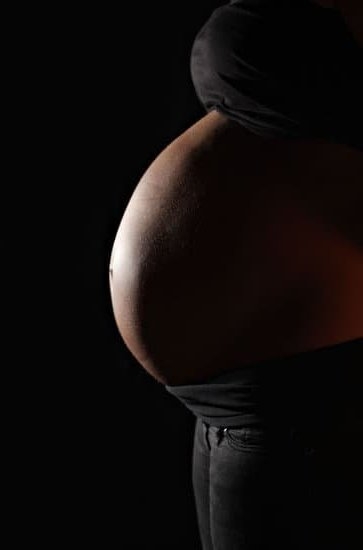Anemia during pregnancy is a common condition that affects many expectant mothers. It occurs when the body does not have enough red blood cells to carry oxygen to the tissues, leading to symptoms such as fatigue and weakness. In this section, we will explore the causes of anemia during pregnancy, its signs and symptoms, as well as the risks and complications it poses for both mother and baby.
During pregnancy, a woman’s body undergoes numerous changes that can increase the risk of developing anemia. Understanding these causes is crucial in identifying and addressing the condition effectively. We will delve into the various factors that can lead to anemia in pregnant women, including nutritional deficiencies and physiological changes that occur during gestation.
Recognizing the signs and symptoms of anemia during pregnancy is essential for timely intervention and management. Low energy levels, pale skin, and dizziness are just a few indicators that may point to an underlying issue with iron deficiency or other forms of anemia. Additionally, we will discuss how screening and diagnosis play a vital role in ensuring optimal health for both mother and baby throughout pregnancy.
Signs and Symptoms of Anemia During Pregnancy
Understanding the Signs and Symptoms
Anemia during pregnancy can have a significant impact on both the mother and the developing baby. It is important for pregnant women to be aware of the signs and symptoms of anemia in order to seek timely treatment and prevent any potential complications.
Some common signs of anemia during pregnancy include fatigue, weakness, pale skin, dizziness, shortness of breath, rapid heartbeat, and difficulty concentrating. Many of these symptoms are also common discomforts associated with pregnancy, which is why it’s crucial for expectant mothers to undergo regular prenatal check-ups to monitor their iron levels.
Effect on Mother and Baby
When left untreated, anemia during pregnancy can lead to serious risks and complications for both the mother and her baby. For the mother, severe anemia can increase the risk of preterm labor, giving birth to a low birth weight baby, or experiencing postpartum depression.
In more severe cases, it may also lead to heart problems. On the other hand, babies born to mothers with untreated anemia are at a higher risk of being born prematurely or having a low birth weight, which can impact their overall health and development.
Getting Proper Treatment
Given the potential risks associated with anemia during pregnancy, it is important for pregnant women to seek proper diagnosis and treatment if they experience any symptoms. In many cases, doctors will recommend iron supplements or changes in diet to help increase iron levels.
Additionally, some women may require further medical intervention such as intravenous iron therapy if their condition is more severe. Ensuring adequate treatment for anemia during pregnancy is crucial in ensuring the health and well-being of both the mother and her child.
Risks and Complications for Mother and Baby
Anemia during pregnancy can pose various risks and complications for both the mother and the baby. It is essential to understand these potential consequences in order to effectively manage and treat the condition.
Some of the risks and complications associated with anemia during pregnancy include:
- Preterm birth: Anemic women are at a higher risk of delivering prematurely, which can lead to a range of health issues for the baby.
- Low birth weight: Anemia can also result in the baby being born with a lower birth weight, which may impact their overall health and development.
- Maternal fatigue: Pregnant women with anemia often experience severe fatigue, which can make it challenging to manage daily activities and take care of themselves.
- Postpartum depression: Anemic women may be at greater risk of developing postpartum depression following childbirth, due to the physical and emotional toll of the condition.
Given these potential complications, it is crucial for pregnant women to prioritize their health and seek appropriate treatment for anemia. By addressing anemia effectively, mothers can reduce the likelihood of experiencing these complications and promote better outcomes for both themselves and their babies.
In addition to seeking medical treatment, pregnant women should also focus on maintaining a healthy lifestyle and consuming a balanced diet rich in iron, folic acid, and other essential nutrients. Regular prenatal check-ups and screenings will help monitor the mother’s hemoglobin levels and ensure prompt intervention if anemia is detected. With proper support and guidance, pregnant women can navigate through this challenging condition while safeguarding their own well-being as well as that of their unborn child.
Diagnosis and Screening for Anemia
During pregnancy, it is important for expectant mothers to undergo regular screening and diagnosis for anemia. Anemia during pregnancy can have adverse effects on both the mother and the baby, so early detection and management are crucial. Here are some key points to understand about diagnosing and screening for anemia during pregnancy:
1. Regular Hemoglobin Testing: It is recommended for pregnant women to have their hemoglobin levels checked at the first prenatal visit and then periodically throughout the pregnancy. This helps healthcare providers monitor any fluctuations in hemoglobin levels and detect anemia early on.
2. Iron Studies: In addition to hemoglobin testing, iron studies may also be conducted to assess the body’s iron stores. This can provide a more comprehensive understanding of a pregnant woman’s risk of developing or already having anemia.
3. Additional Testing: In some cases, healthcare providers may also recommend additional tests such as a complete blood count (CBC) or serum ferritin levels to further evaluate the severity and underlying causes of anemia during pregnancy.
It is important for pregnant women to be proactive about getting screened and diagnosed for anemia, as early detection can lead to better management and outcomes for both mother and baby. By monitoring hemoglobin levels, conducting iron studies, and considering additional testing when necessary, healthcare providers can effectively diagnose anemia during pregnancy and implement appropriate treatment plans to address it.
Treatment Options for Anemia During Pregnancy
Iron Supplementation
Iron supplementation is one of the most common treatments for anemia during pregnancy. Pregnant women with anemia are often advised to take iron supplements to help increase their iron levels. These supplements come in various forms such as ferrous sulfate, ferrous gluconate, and ferric citrate. It is important to follow the recommended dosage provided by healthcare providers to avoid iron toxicity.
Transfusion Therapy
In severe cases of anemia during pregnancy, especially when other treatment options have failed or when there is a significant risk to the mother and baby, transfusion therapy may be necessary. Transfusion therapy involves receiving blood from a donor to increase the red blood cell count and improve overall health.
Dietary Changes
In addition to iron supplementation, making dietary changes can also help manage anemia during pregnancy. Eating foods high in iron such as lean meats, poultry, fish, beans, lentils, tofu, and dark leafy greens can help increase iron levels. Including vitamin C-rich foods in the diet can also aid in the absorption of iron.
It is important for pregnant women with anemia to consult with their healthcare providers to determine the most suitable treatment option for their individual condition. Proper treatment and management of anemia during pregnancy are crucial for the health and well-being of both the mother and baby.
Nutritional Recommendations for Preventing and Managing Anemia
Proper nutrition plays a crucial role in preventing and managing anemia during pregnancy. Iron deficiency is the most common cause of anemia, so it is essential for pregnant women to consume foods high in iron such as lean red meat, poultry, fish, lentils, beans, and fortified cereals. In addition to iron, foods rich in vitamin C can help improve iron absorption, so incorporating fruits like oranges, strawberries, and kiwi into the diet is also important.
Aside from iron-rich foods, folate and vitamin B12 are also essential for preventing anemia during pregnancy. Green leafy vegetables like spinach and kale are excellent sources of folate, while vitamin B12 can be found in dairy products, eggs, and fortified foods. It is important for pregnant women to maintain a well-balanced diet that includes a variety of nutrient-dense foods to ensure they are getting all the necessary vitamins and minerals to prevent anemia.
Furthermore, it may be beneficial for pregnant women to take prenatal vitamins that contain iron as well as other essential nutrients. These supplements can serve as a nutritional safety net to ensure that pregnant women are meeting their daily requirements for iron and other important nutrients. However, it is important for pregnant women to consult with their healthcare provider before starting any new supplement regimen.
According to the American College of Obstetricians and Gynecologists (ACOG), pregnant women should aim to get at least 27 milligrams of iron per day through food sources and/or supplements to support healthy fetal growth and development while also preventing anemia during pregnancy.
| Nutrient | Food Sources |
|---|---|
| Iron | Lean red meat, poultry, fish, lentils, beans |
| Vitamin C | Oranges, strawberries, kiwi |
| Folate | Spinach, kale |
| Vitamin B12 | Dairy products,eggsandfortified foods |
Lifestyle Changes and Supplements for Dealing With Anemia
Pregnant women who are diagnosed with anemia during pregnancy may need to make some lifestyle changes and consider taking supplements to help manage their condition. Making these adjustments can be beneficial for both the mother and the baby, as it can improve the overall health and well-being of both individuals.
Some lifestyle changes that pregnant women with anemia should consider include increasing their intake of iron-rich foods such as lean meats, poultry, fish, lentils, beans, tofu, and fortified cereals.
In addition to incorporating more iron-rich foods into their diet, pregnant women with anemia may also benefit from taking iron supplements as prescribed by their healthcare provider. Iron supplements can help increase the body’s iron stores and prevent or treat anemia. It is essential for pregnant women to discuss with their healthcare provider before starting any supplement regimen, as too much iron can be harmful.
Furthermore, pregnant women with anemia should also consider making lifestyle changes that can help improve the body’s ability to absorb iron. Consuming foods high in vitamin C such as citrus fruits, strawberries, bell peppers, and tomatoes can enhance the absorption of iron from plant-based sources. On the other hand, substances such as caffeine and calcium may inhibit the absorption of iron and should be consumed in moderation by pregnant women with anemia.
Overall, making these lifestyle changes and considering supplementation under the guidance of a healthcare provider can play a critical role in managing anemia during pregnancy and ensuring the health of both the mother and the developing baby. With proper attention to nutrition and lifestyle habits, many pregnant women with anemia can effectively manage their condition and have a healthy pregnancy experience.
Support and Resources for Pregnant Women With Anemia
In conclusion, anemia during pregnancy can have serious implications for both the mother and the baby. It is essential for pregnant women to be aware of the signs and symptoms of anemia, as well as the potential risks and complications. With proper diagnosis and screening, treatment options can be explored to manage anemia during pregnancy effectively. Additionally, making nutritional recommendations and lifestyle changes can also help prevent and manage anemia in pregnant women.
Seeking support and resources is crucial for pregnant women dealing with anemia. Support groups, counseling, and access to healthcare professionals can provide valuable information and assistance in managing anemia during pregnancy. It is important for pregnant women to know that they are not alone in their struggle with anemia and that there are resources available to help them through this challenging time.
Ultimately, raising awareness about anemia during pregnancy and providing support and resources for pregnant women is crucial in ensuring the health and well-being of both the mother and the baby. By understanding the causes, signs, symptoms, risks, and complications of anemia during pregnancy, as well as accessing proper diagnosis, treatment options, nutritional recommendations, lifestyle changes, and support resources, pregnant women can effectively manage their condition for a healthier pregnancy outcome.
Frequently Asked Questions
Can Anemia During Pregnancy Affect the Baby?
Anemia during pregnancy can indeed affect the baby. The condition may lead to low birth weight, premature birth, or other complications for the infant. It’s crucial to address anemia to ensure a healthy pregnancy and baby.
How Can I Control My Anemia During Pregnancy?
Controlling anemia during pregnancy involves maintaining a diet rich in iron, incorporating supplements as recommended by a healthcare provider, and attending regular prenatal check-ups. Consuming foods high in iron, such as leafy greens, meat, and fortified grains, can also help.
When Do You Need Iron Infusion in Pregnancy?
Iron infusion in pregnancy is typically needed when oral iron supplements are not effective or cannot be tolerated due to severe anemia. This treatment method delivers iron directly into the bloodstream to rapidly increase iron levels and improve symptoms of anemia during pregnancy.

Welcome to my fertility blog. This is a space where I will be sharing my experiences as I navigate through the world of fertility treatments, as well as provide information and resources about fertility and pregnancy.





